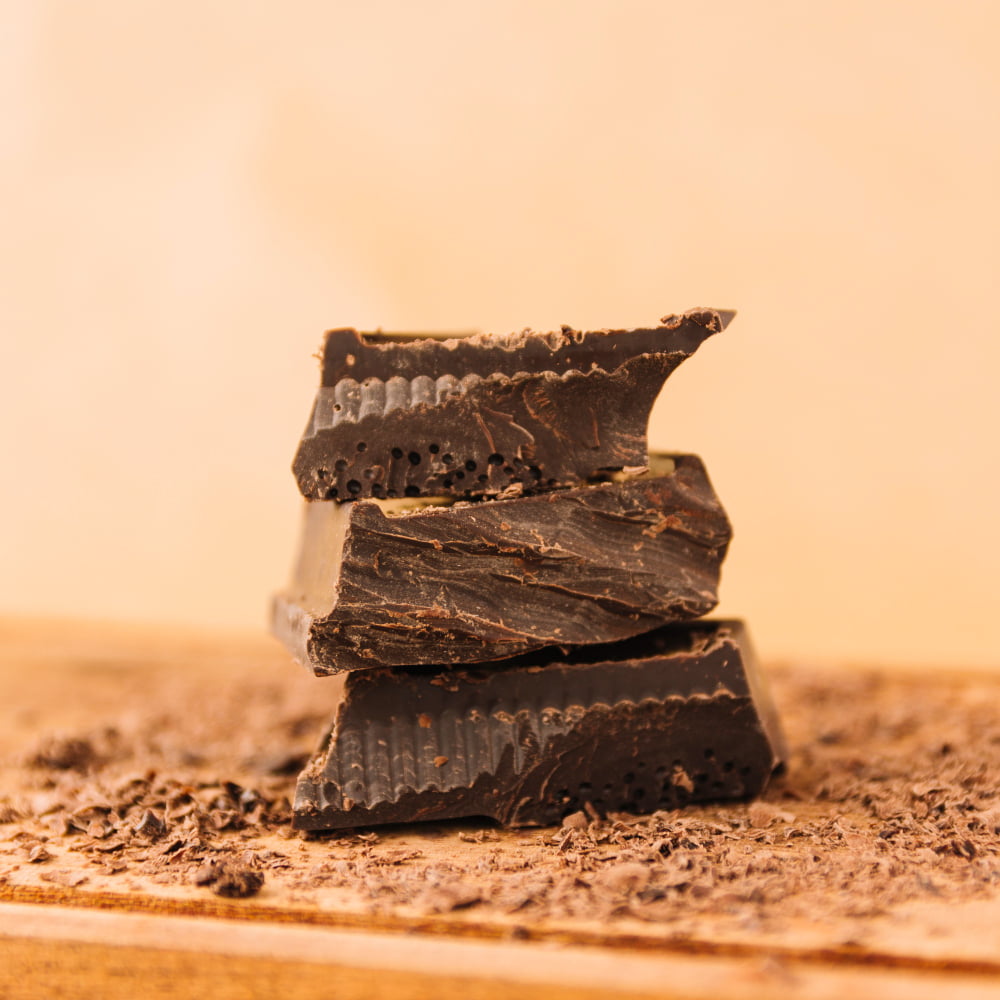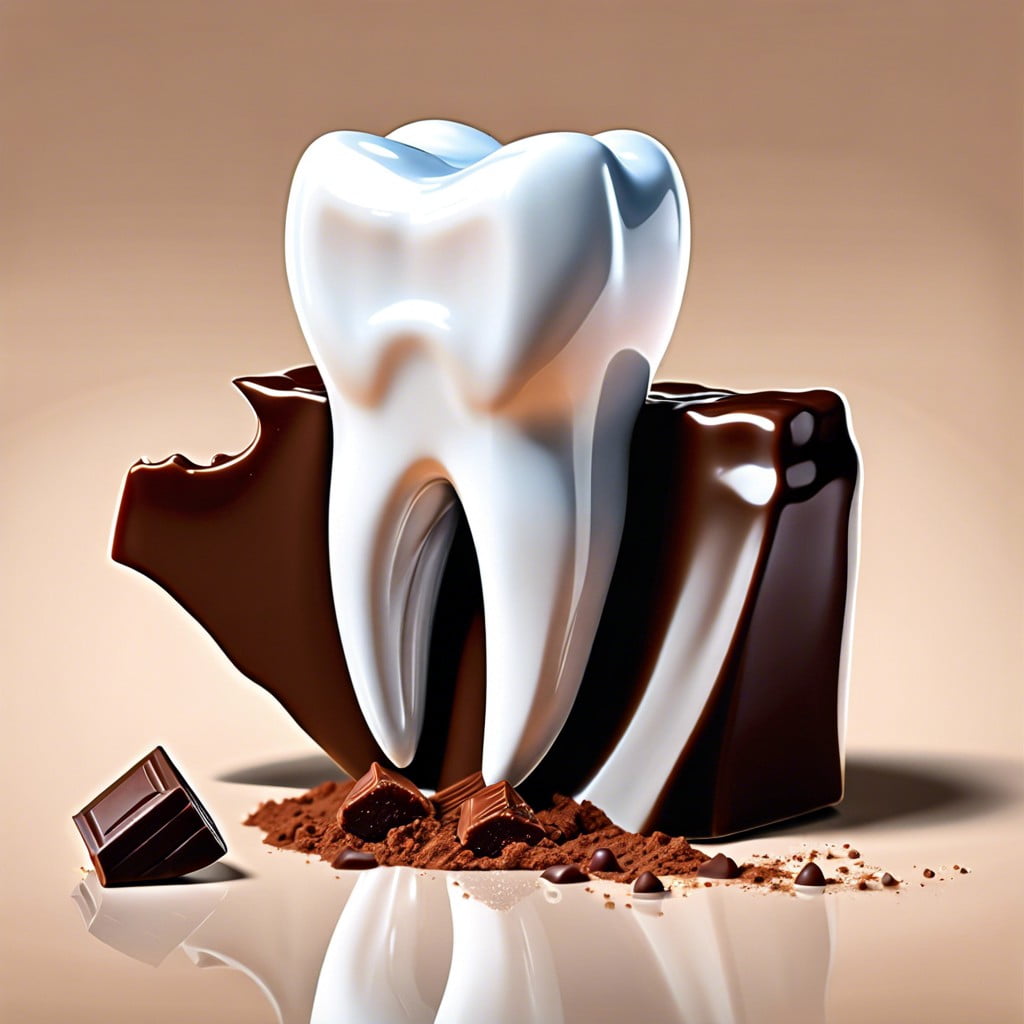Craving chocolate during your period is a common experience, often linked to physiological changes and emotional needs that this article will clarify.
Key takeaways:
- Hormonal fluctuations impact neurotransmitters, influencing mood and cravings.
- Magnesium deficiency before menstruation can lead to chocolate cravings.
- Chocolate’s compounds can affect brain chemistry, enhancing mood and cognition.
- Psychological factors, like cultural norms and advertising, can intensify cravings.
- Managing cravings can involve choosing dark chocolate, magnesium-rich foods, physical activity, mindful eating, and stress-reduction techniques.
Inside
Hormonal Fluctuations During the Menstrual Cycle

During the menstrual cycle, estrogen and progesterone levels see-saw, impacting neurotransmitters in the brain. These hormonal shifts can influence mood and trigger cravings. For instance, serotonin, a feel-good chemical that boosts mood, dips premenstrually. Since chocolate boosts serotonin, your body may seek it as a quick way to enhance well-being.
Another hormone, cortisol, also surges during this time, leading to stress-induced cravings, where chocolate’s comforting effect is a natural go-to for relief. Additionally, fluctuations in blood sugar can prompt a desire for sweet foods, like chocolate, as the body attempts to stabilize glucose levels.
Understanding these physiological changes can help in managing cravings through diet, lifestyle, and stress reduction techniques.
Magnesium Deficiency and Chocolate Cravings
Magnesium levels may dip before menstruation, leading to cravings for chocolate, which is a rich source of this mineral. Inadequate magnesium can result in fatigue and mood changes, symptoms that chocolate consumption might temporarily alleviate due to its magnesium content.
To combat these cravings, consider incorporating magnesium-rich foods like nuts, seeds, and leafy greens into your diet. If chocolate irresistible, opt for dark varieties with high cocoa content for a more substantial magnesium boost. Keep portions sensible to balance indulgence with nutritional benefit.
Chocolate’s Effect On Brain Chemistry
Chocolate has a range of compounds that can influence mood and cognition. For instance, phenylethylamine in chocolate is thought to release endorphins, similar to those released during physical activity and romance, potentially lifting spirits and reducing stress. Moreover, it contains small amounts of anandamide, sometimes called the “bliss molecule,” and its fats can slow the breakdown of this compound, prolonging feelings of contentment.
The stimulants caffeine and theobromine are also present in chocolate. These compounds can enhance alertness and energy levels, creating a short-term boost that may be particularly appealing when energy is low, as can be the case during menstruation. Additionally, its sugar content can lead to spikes in blood glucose, which temporarily improves concentration and mood. However, it’s important to consume it in moderation, as the subsequent drop in blood sugar can lead to a crash in energy and mood.
Cultural and Psychological Factors
The comfort associated with chocolate consumption could be tied to societal norms. In many cultures, chocolate is often presented as a soothing treat or a reward, which may condition individuals to reach for it during times of stress or emotional discomfort, such as a menstrual period.
Advertising also plays a role in intensifying these cravings. Commercials and marketing campaigns typically depict chocolate as a go-to indulgence for women during their menstrual cycle. This reinforcement can create a psychological trigger that subconsciously prompts the desire for chocolate when experiencing period-related symptoms.
Furthermore, social sharing of chocolate as a group activity among friends or family can amplify these cravings. It is not uncommon to find solace in shared chocolate treats, fostering a sense of community and emotional support during challenging times, including the premenstrual and menstrual phases.
Lastly, personal experiences and memories can influence cravings. If you have a history of turning to chocolate during your period and found it pleasurable or comforting, this can build a habit-forming loop, intensifying future cravings based on those past positive associations.
Managing Chocolate Cravings
Opt for dark chocolate with high cocoa content for a healthier option, as it’s richer in antioxidants and lower in sugar. Moderation is key; a small piece can satisfy your craving without overindulging.
Incorporate other magnesium-rich foods like nuts, seeds, and leafy greens into your diet, which may help alleviate cravings by addressing potential nutrient deficiencies.
Physical activity can boost endorphins and help reduce the intensity of cravings. Consider going for a brisk walk or engaging in your favorite workout.
Mindful eating practices encourage you to savor the flavor and texture of chocolate slowly, leading to greater satisfaction with smaller amounts.
Stay hydrated, as sometimes the body confuses thirst with hunger and cravings. Drinking water or herbal teas can minimize misinterpreted cravings.
Explore alternative stress-relief techniques such as deep-breathing exercises, yoga, or meditation, as stress can often trigger cravings for comfort foods like chocolate.




